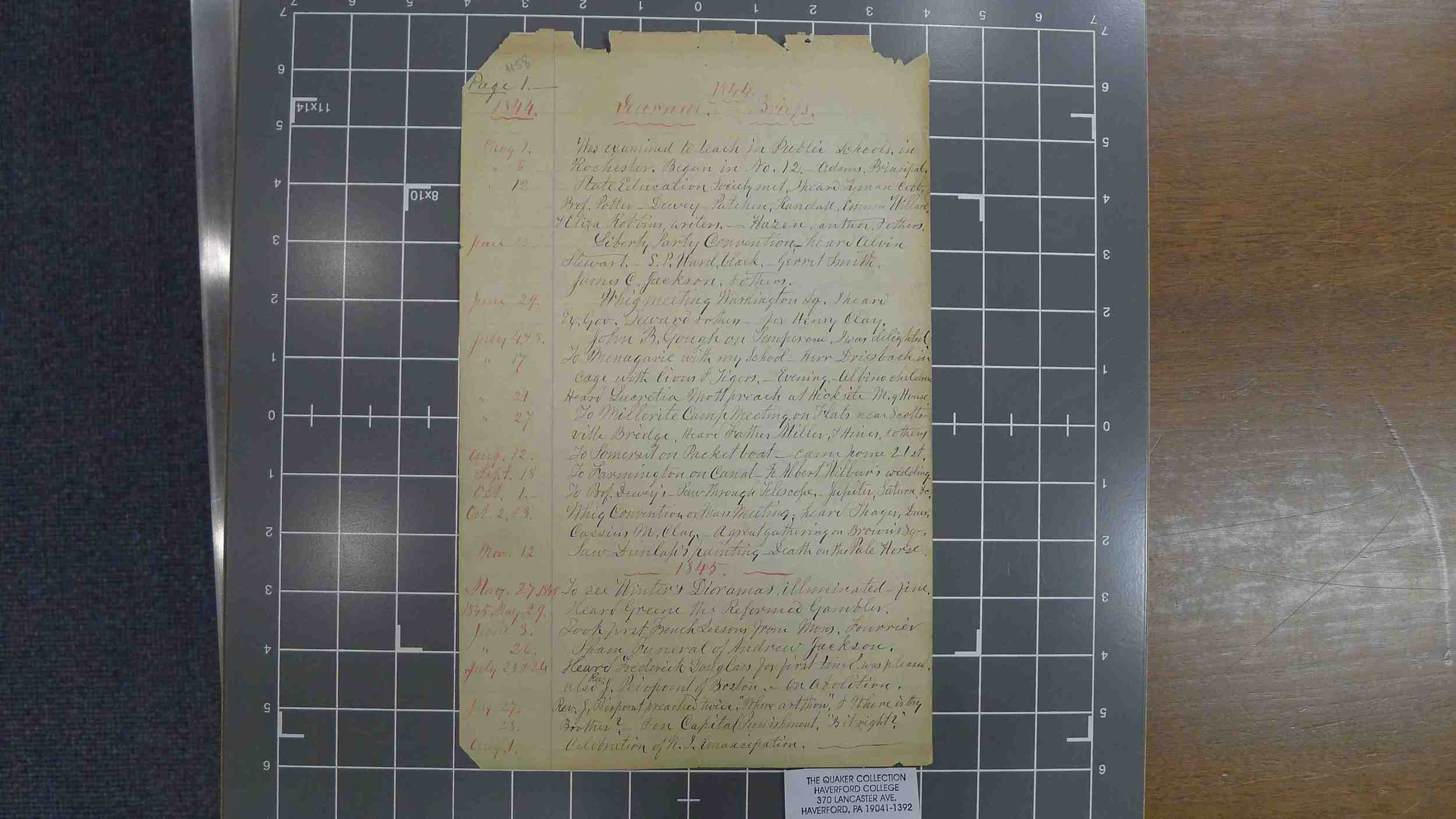My book began with these diaries. I soon learned Julia Wilbur's handwriting and abbreviations, but also a lot more. Through her diaries, I knew her.
More on the Diaries
This is the first page of Julia Wilbur's "Journal Briefs," when she looked back at some of the highlights (and lowlights) in her life.
More on Julia Wilbur's Diaries...
They consist of three sets:
- Small, leatherbound pocket diaries, one per year and usually one page per day, kept from 1856 to 1895.
- Loose sheets about 5 by 7 inches, bound in packets of 20 pages or so, that she dated herself, in which one day's entry can be anything from a few lines to a few pages, from 1844 to 1873. She probably continued past 1873, but they are lost or, in any event, not part of the archive.
- "Journal briefs," a sort of greatest hits on lined, legal-sized paper, that she excerpted in the 1880s, looking back from 1844 to the end of 1862.
The originals live in the Quaker and Special Collections at Haverford College, donated by her great-nephew Douglas Steere. Steere was a long-time professor at Haverford and he thankfully has shared them beyond his family.
Microfilm of the Pocket Diaries and Journal Briefs are in the Local History Room in the Alexandria Library.
As my first foray into the life of Julia Wilbur, I transcribed and annotated the Civil War years of the pocket diaries, using the microfilm. You can read my transcription on the Friends of Alexandria Archaeology website.
In 2012, I went up to Haverford to see the originals of what I was transcribing. That is when I came upon the unbound journals (which I cite as "Large Diaries" in my book), which then lay in a box, never microfilmed or scanned. Researchers and others, of course, knew about and used them, but we did not know about them in Alexandria.
Friends of Alexandria Archaeology and Haverford shared the cost of scanning each individual page from 1860 through 1873. In 2013-2014, I coordinated a group of volunteers to transcribe this set. These transcriptions reside on the City of Alexandria website, along with other first-person accounts. You can read our transcription on the Alexandria Archaeology website as a downloadable PDF.

